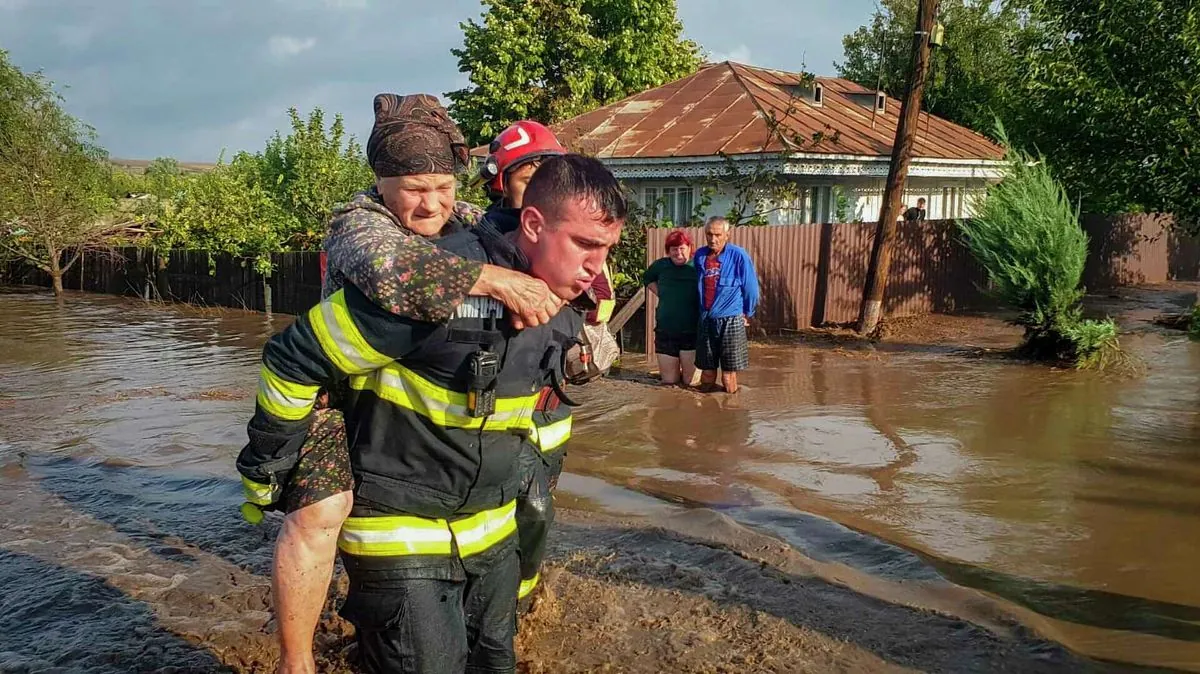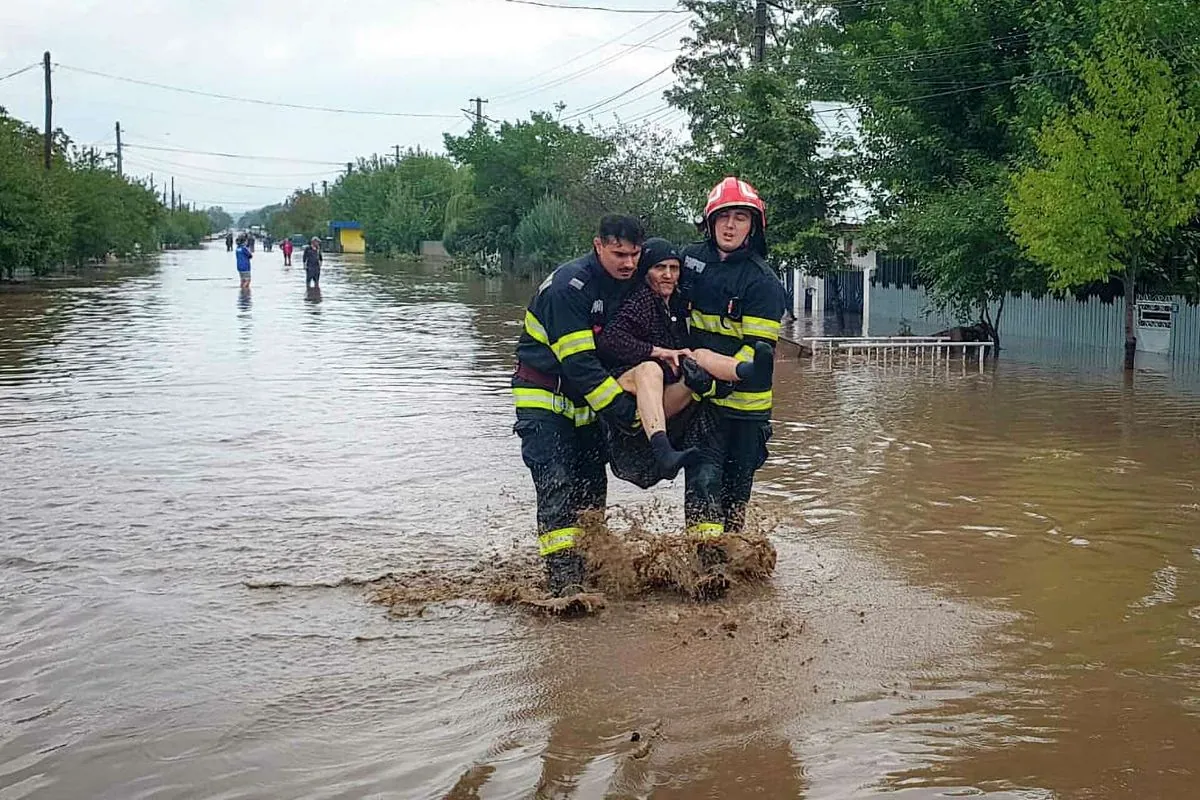Deadly Floods Strike Eastern Romania Amid Central European Weather Crisis
Five fatalities reported in Romania as torrential rains cause widespread flooding. Central European nations brace for severe weather, linking recent events to climate change impacts.

In a devastating turn of events, eastern Romania has been hit by severe flooding, resulting in five fatalities. The Department for Emergency Situations reported the discovery of bodies in the localities of Pechea, Draguseni, Costache Negri, and Corod, as torrential rainstorms left numerous individuals stranded in flood-affected areas.
Rescue operations are in full swing, with emergency services working tirelessly to save 95 people in the heavily impacted eastern counties of Galati and Vaslui. These regions, known for their agricultural lands and proximity to the Moldova border, have been particularly vulnerable to the recent deluge.

To bolster rescue efforts, authorities have deployed a Black Hawk helicopter to Galati county. This versatile aircraft, typically used for military operations, has been repurposed for critical search and rescue missions in the flood-stricken areas.
The severity of the situation has prompted Marcel Ciolacu, who assumed the role of Romania's Prime Minister in June 2023, to cancel his scheduled engagements. He is now en route to Galati county to personally assess the damage and coordinate support measures for affected communities.
"The Prime Minister will discuss with the local authorities the urgent intervention and support measures for the population and communities severely affected by the floods."
The extreme weather event has not been isolated to Romania. Several Central European nations, including the Czech Republic, Poland, Austria, Germany, Slovakia, and Hungary, are bracing for potential flooding over the weekend. This widespread threat has put governments on high alert, with leaders taking proactive measures to mitigate potential disasters.
In Poland, Prime Minister Donald Tusk visited the southwestern city of Wrocław on September 13, 2024, where flooding is anticipated. Polish authorities have urged residents to prepare for power outages and stock up on essential supplies.
Similarly, Czech Prime Minister Petr Fiala has warned of potential worst-case scenarios, emphasizing the need for readiness as a low-pressure system from northern Italy threatens to bring heavy rainfall to much of the country.
These extreme weather events follow a period of record-breaking temperatures. The summer of 2024 has been documented as Earth's hottest on record, surpassing the previous record set just a year earlier in 2023. This trend aligns with scientific consensus on the impacts of human-caused climate change, which is intensifying weather patterns globally.
Climate scientists have long warned that a warmer atmosphere, driven by greenhouse gas emissions, can lead to more intense rainfall events. This connection between climate change and extreme weather underscores the urgent need for adaptive measures and global efforts to mitigate further environmental degradation.
As Central European nations face this immediate crisis, the events serve as a stark reminder of the increasing frequency and severity of climate-related disasters. The implementation of early warning systems, such as the text alerts used in Romania, highlights the critical role of disaster preparedness in saving lives and minimizing damage.
With the European Union's mechanisms for coordinating disaster response among member states, there is hope for a collaborative approach to addressing both the immediate flooding concerns and the long-term challenges posed by climate change.


































